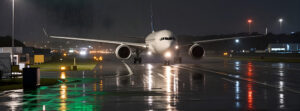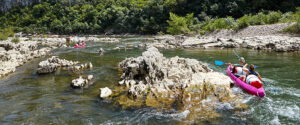Driving along an Outback road in the Northern Territory I approached the back of what looked like a double-decked cattle truck. It was slower than me so I waited for an appropriate stretch of road and pulled out to overtake. What I saw was quite breathtaking. The tractor unit was 50 metres down the road and was pulling four large trailers, all double-decked cattle carriers. Foot down the Subaru I was driving picked up pace. There was some distance to go before I could complete the overtake and pull in; and a corner was getting closer. The Subaru was buffeted back and forth as I gripped the steering wheel hard to prevent us being dragged under the massive wheels. It felt like I was overtaking a freight train. Actually I was; this was a train with out rails also known as a road train.
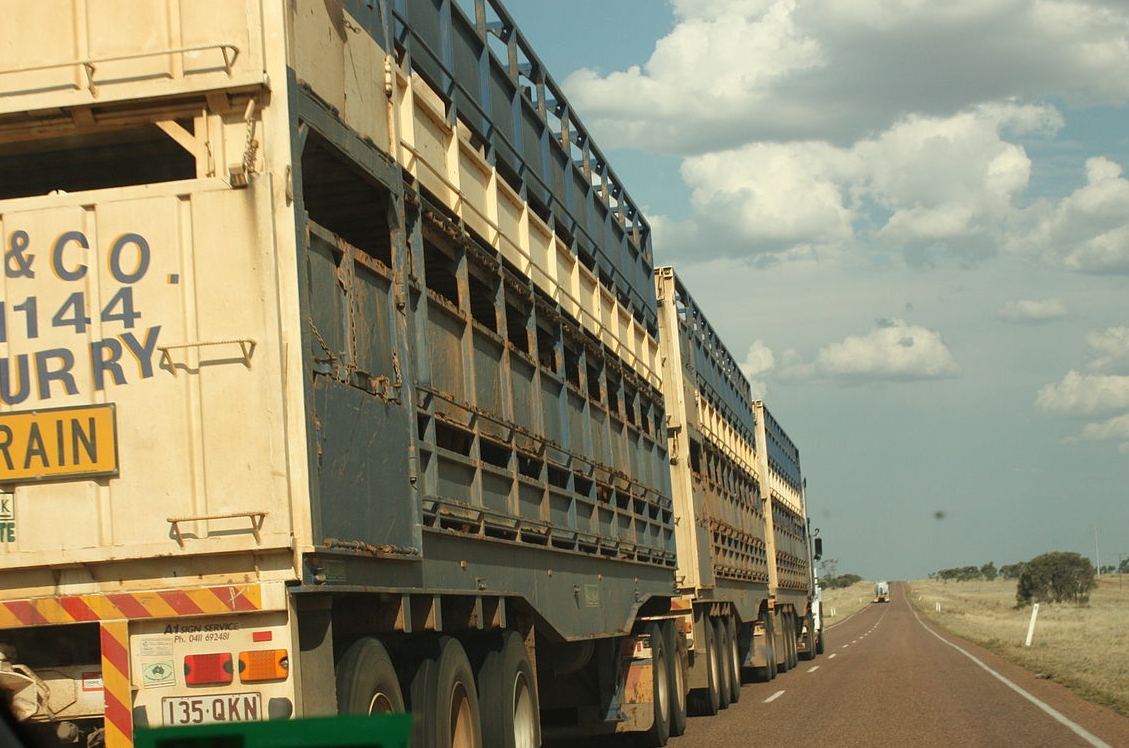
© Talisen – source: http://commons.wikimedia.org
After what seemed like an eternity I was able to complete the move. I pulled in front but did not slow down because the road trains, like their railway counterparts, take some stopping.
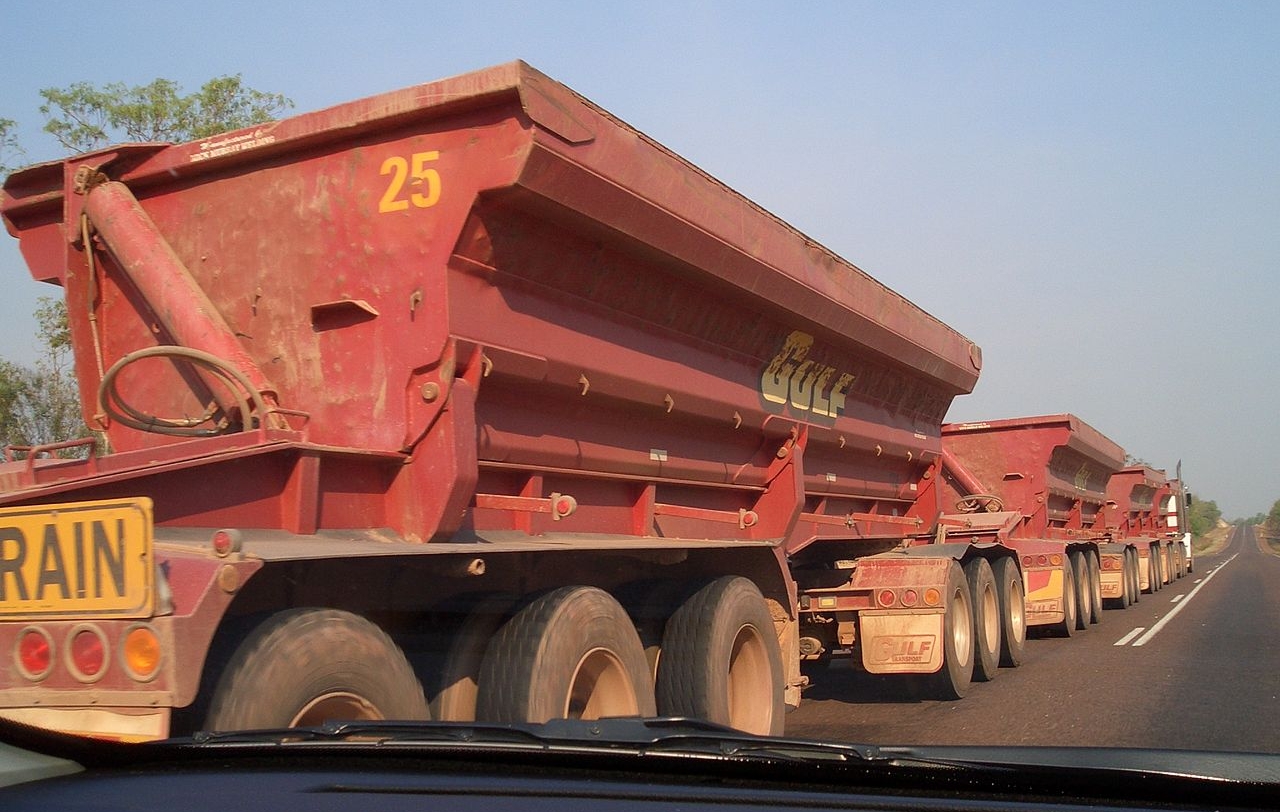
© Christleewin – source: http://commons.wikimedia.org
I was to pass numerous road trains on my three week stay in the Northern Territory. Many were cattle trucks but there were other road trains pulling pulling two, three or four fuel tankers or ore hoppers. Occasionally there would be a container or a flatbed trailer. One thing they had in common was they were pulling multiple trailers.
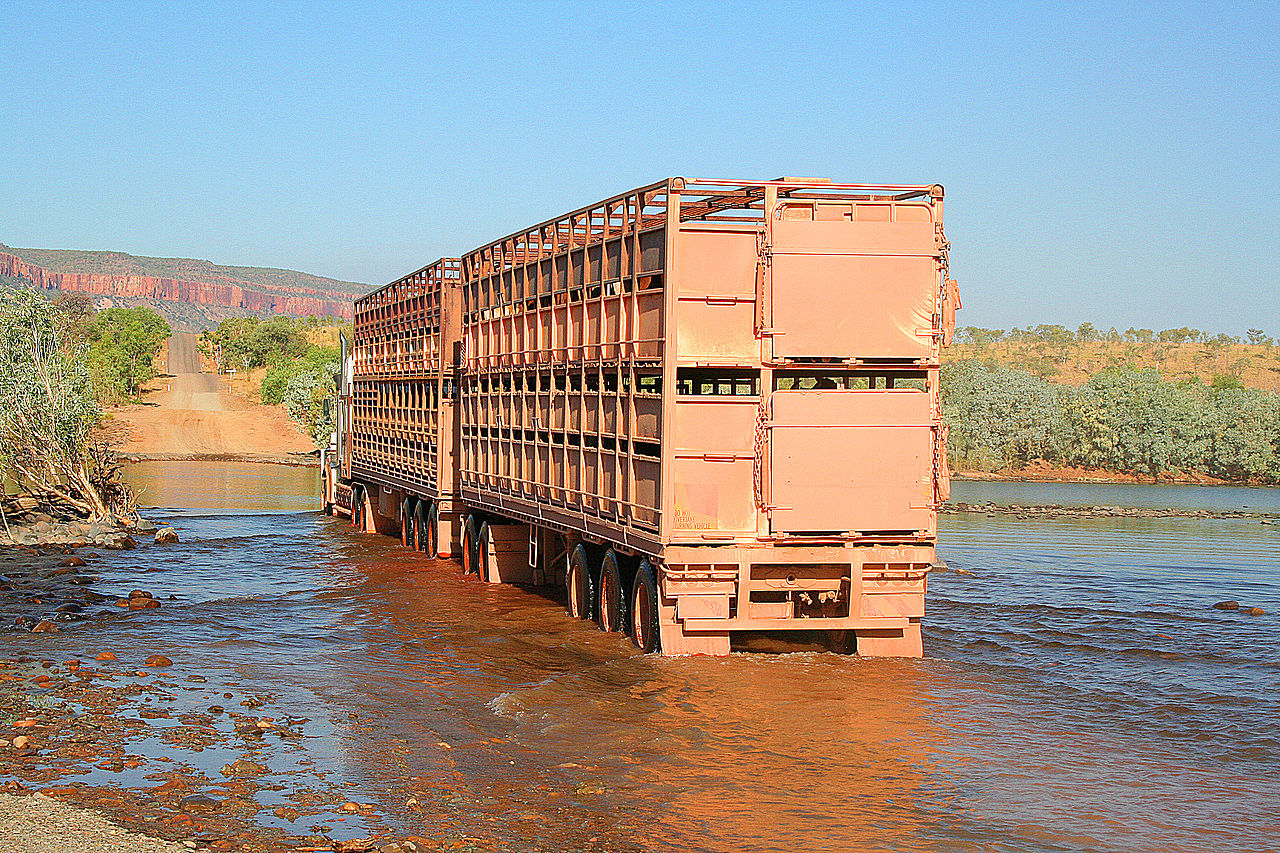
© Bäras – source: http://de.wikipedia.org
The road trains are vital to the Australian economy taking fuel and supplies to remote communities and bring cattle, produce and minerals mined in the interior. Pulling multiple trailers makes sound economic sense in a land where there is little railway infrastructure away from urban areas and the coast.
The road trains originally replaced the Afghans and their camel train who traversed the inhospitable landscape of the Australian interior. Steam tractors were used and then motorised vehicles pulling several trailers.
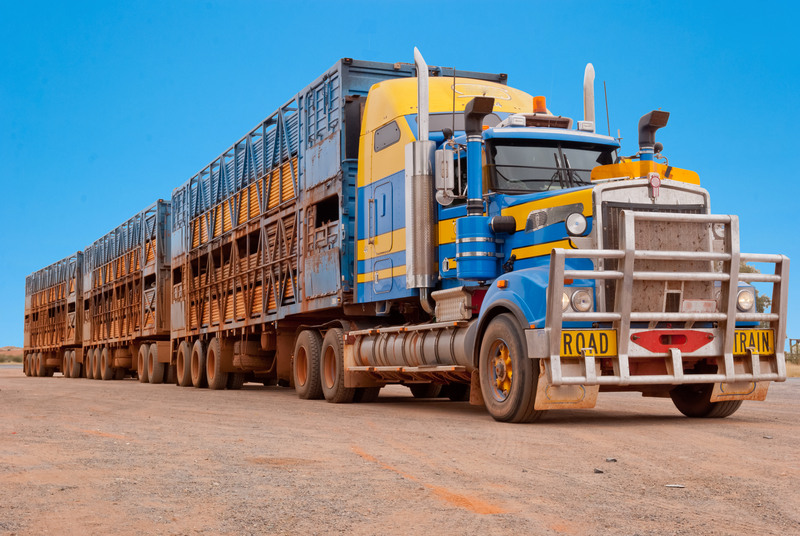
© Ladiras81 – source: www.dreamstime.com
Being so long and needing plenty of room for turning means the road trains are banned from urban centres and some roads. In Darwin they are allowed within a few miles of the Central Business District. There they park up and, if needed, the trailers are pulled into the city or to the docks one-by-one.
In the Northern Territory they are quite a common sight on the roads. If the road is sealed there is only the buffeting as you pass to worry about. On the unsurfaced roads it is a different matter. The dust storm all those wheels create reduces visibility to virtually nil. Advice I was given was, stop, rest and have a picnic. I never encounter one of these road monsters on a dirt track so didn’t get to picnic in the Outback.
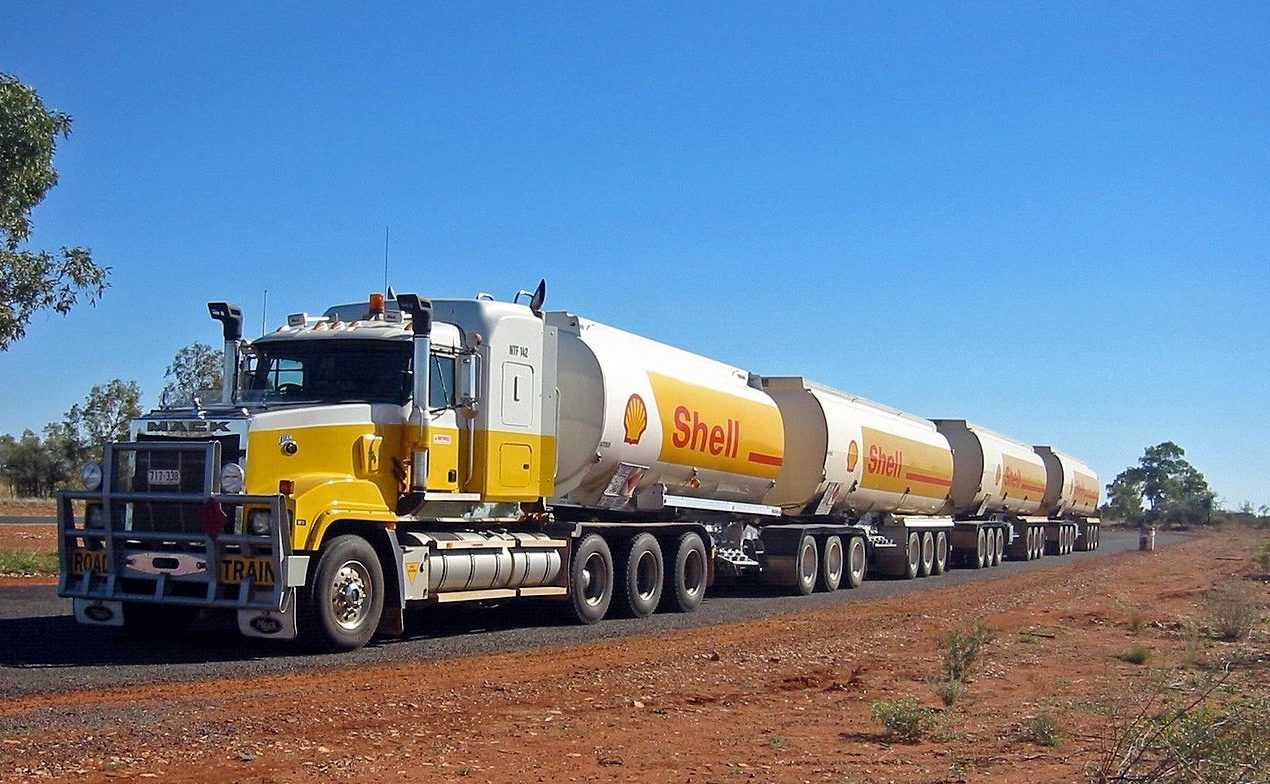
© Thomas Schoch – source: http://commons.wikimedia.org
Road trains have become a bit of a tourist attraction as they are unique to Australia – well almost. You can buy postcards everywhere in the Northern Territory with the various configurations of trailers. At the rest stops you will often see people taking pictures of these enormous road monsters.
Territory drivers have to be very road train aware. Always give them plenty of room. Do not try to nip in front of them when pulling out. They need a lot of tarmac and even more dirt track to come to a stop. Traffic lights at major junctions coming into Darwin have warning lights several hundred metres back from the junction that warn the drivers the green light ahead is going to turn red. The sequence of light changes gives a much longer period before allowing traffic out onto the intersection to allow for the road trains coming through.
 One thing you do not want is a close encounter with one of these behemoths. I know I have had one. I was stopped at a red light when I was rear ended by a three wagon, ore carrying road train who had ignored the flashing lights and then didn’t have enough road left to stop. The Subaru developed a new hunchback shape and I ended up at the Royal Darwin Hospital in a neck brace. Fortunately I lived to tell the tale with only severe whiplash injuries. It could have been a lot worse – road trains they say don’t take prisoners.
One thing you do not want is a close encounter with one of these behemoths. I know I have had one. I was stopped at a red light when I was rear ended by a three wagon, ore carrying road train who had ignored the flashing lights and then didn’t have enough road left to stop. The Subaru developed a new hunchback shape and I ended up at the Royal Darwin Hospital in a neck brace. Fortunately I lived to tell the tale with only severe whiplash injuries. It could have been a lot worse – road trains they say don’t take prisoners.
Despite the unwanted close encounter the road train is part of the Top End landscape and, some would say, culture
For ideas on what to do in Northern Territory visit www.australiasoutback.co.uk.
I will be writing more about the Northern Territory in future posts. If you would like to know when these appear then sign up to be notified in the sidebar on this page or like the Travel Unpacked Facebook page
